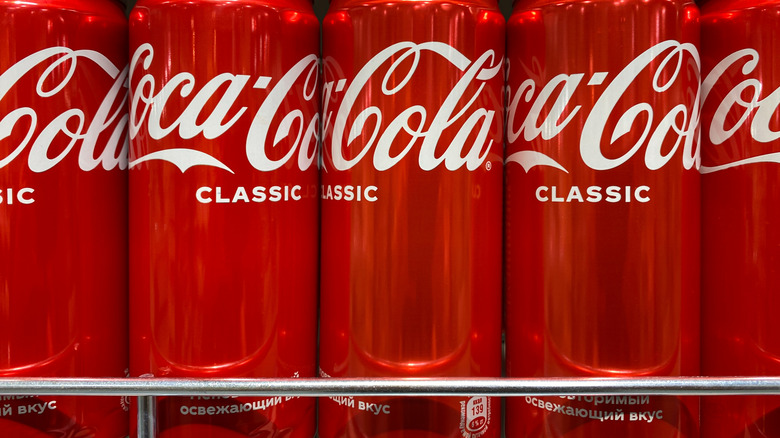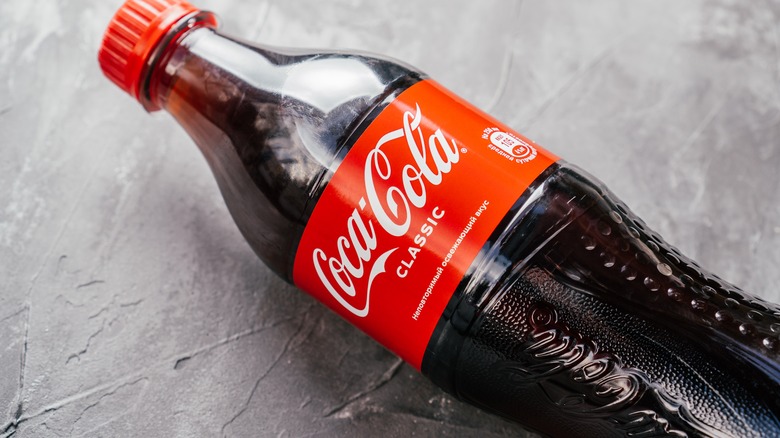Soon You'll No Longer Be Able To Drink A Coke In Russia
According to Reuters, it will be tough to have a Coke and a smile in Russia. The newswire reports that European bottler Coca-Cola HBC said in a statement that it was "in the process of depleting stock" of the soft drink. The statement was issued after a Reuters story reported bottled Coke sales continued at a McDonald's franchise in St. Petersburg.
In March, Coca-Cola and 290 global brands announced it was suspending production in Russia, Food Navigator-USA reports. The outlet explains that Coke entered the Russian market in 1980; and opened its first Russian factory producing the beverage in 1992.
American soft drinks in Russia have a rich history that spans the Cold War. During a contentious 1959 televised debate between then-Vice President Richard Nixon and Soviet Russia Premier Nikita Khrushchev, the two men shared a Pepsi (via NPR). Seeing an opportunity, Donald Kendall, head of Pepsi's international relations, went to Russia and struck up a relationship with Khrushchev. The Russians eventually bottled their own version of Pepsi, which became the dominant soft drink in the USSR. By the time Coca-Cola began infiltrating the Russian market, Pepsi's toehold gave them continued dominance.
Coke exits Russia
Russia Beyond explains that Russia is the only market where Coke lost the soda wars. In the 1930s, an official Coca-Cola delegation visited the Soviet Union, but the astronomical cost kept the soft drink out of the country. During World War II, Soviet general Marshal Georgy Zhukov became a fan of the beverage after being introduced to it by General Dwight D. Eisenhower. Because Zhukov couldn't be seen drinking an American brand, he asked the company to create so-called "White Coke," a clear version of the soda packaged in nondescript bottles that were only for his personal use.
Fanta was officially the first Coke brand to enter the Russian market in 1979. At the 1980 Moscow Olympics, which the U.S. boycotted because of Russia's Afghan invasion, Coke slipped into the Russian capital, saying that as a long-time sponsor of the Olympics, they were above politics. But even the official drink of the Moscow Games couldn't fully enter the country until 1986. Regardless of its late arrival (and Pepsi's continued dominance) in the country, Fortune President and CEO Alan Murray called Coke and fast-food chain McDonald's "potent symbols of the global triumph of capitalism over the past half-century."
In May, Reuters reported that the Switzerland-based Coca-Cola HBC, an independent company, ceased orders of Coca-Cola's concentrate, saying they would begin focusing on local soft drink brands instead.

